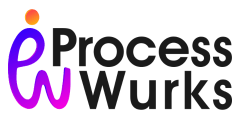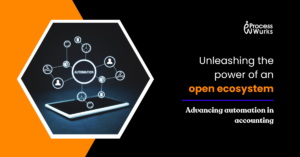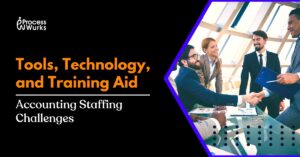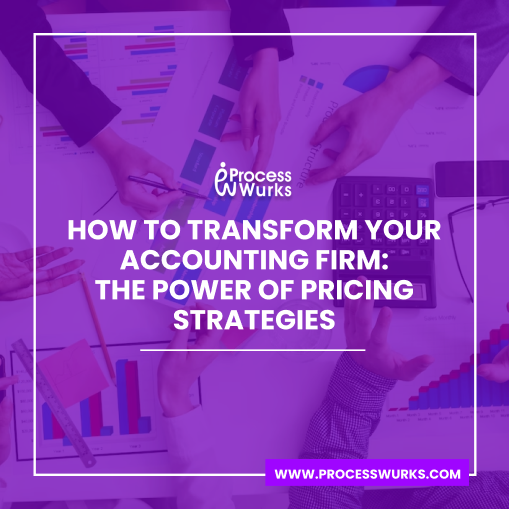
Share This Post
Automating your accounting processes will save you time and reduce errors. This way, you can spend more of your day growing your business than doing paperwork!
When running a business, speed is very important, whether you are making a decision, delivering orders, or accepting payment. But some tasks can take a long time and slow down important processes.

This is especially true for data-driven tasks that are done repetitively, such as accounting. Automation can help your business finish boring tasks quickly and well. In particular, accounting automation makes it possible for your company to do accounting tasks correctly in less time. This feature lets you keep track of your business’s finances and deal with problems quickly. If your company has financial trouble, it might be time to automate your accounting processes. Here’s a closer look at automating accounting processes.
Also Read: How Can Tax Technology Help Increase Efficiencies And Improve Company Performance?
Can You Automate In Accounting?
Most small businesses still use a paper-based system to keep track of their financials, but this can be time-consuming and inaccurate. With the help of today’s technology, you can automate your accounting process so you can save time and ensure accuracy.

Automating your accounting can also help you save money by eliminating the need for costly software and employees who are less efficient than software.
This software has several features that make it well-suited to automated accounting:
Purchasing Process Automation
Purchasing is the process of getting goods and services for your business. Buying and procurement are sometimes used interchangeably. The following are parts of the process:

- Searching for suppliers and vendors to buy goods and services
- Creating and receiving purchase requisitions, which are forms that tell the purchasing department to buy certain goods and/or services
- Creating and sending purchase orders (PO) forms to suppliers that are legally binding and promise to buy certain products
- Reviewing current POs and approving contracts.
These tasks are highly time-consuming and also require manual human errors to have serious repercussions for the company. Automating these tasks with accounting software increases efficiency by removing bottlenecks such as long waits for multiple approvals and helps ensure accuracy.
Expense Reports Automation
An expense report is a form that keeps track of how much your business spends on business-related expenses. It includes information about things like
- Date of when the item was bought,
- Vendor from whom the item was bought,
- Client for whom the item was purchased Project for which the item will be used
- The account number which is automate accounting processes.
- The author who wrote the new expense
- Notes can include other information, such as the state of the goods or services bought.
- The total amount of the whole transaction, including tax
Expense reports are used to manage employee reimbursements, keep track of your company’s spending to find places where costs could be cut, and find tax deduction opportunities.
Due to the amount of information that needs to be included in an expense report, small businesses may choose to use software-as-a-service expense automation software that integrates with enterprise software like ERP solutions to speed up the process and create these expense reports automatically.
Accounts Payable Process
In case you have forgotten, “accounts payable” (AP) is the term for the money that your company owes to suppliers, creditors, or vendors. When keeping track of accounts payable, accountants must go through many invoices, which can be a slow and boring process.
Accounts payable automation would involve using tools that eliminate these manual parts of accounts payable, making invoicing and paying bills easier. AP automation software can process structured and unstructured invoice data and get more accurate over time by combining Optical Character Recognition (OCR), Machine Learning, and Natural Language Processing. This makes your business run more smoothly and has other important benefits, like preventing late fees for vendors who need to be paid on time.
Also, AP automation software usually comes with tracking and analytics tools that let your finance team see AP activity on a dashboard, track the progress of invoice processing, and do other things.
Also Read: Essential Workflow Automation For Accountants
Payroll Process Automation
A manual payroll process is pretty good for a small business. But as your small business grows, doing payroll by hand at the end of the month takes up a lot of time that you could spend on growing the business instead. This is especially true after you hire your fiftieth employee.
When a business owner automate accounting processes, payroll, payslips and tax calculations can be done much faster. It also saves time when figuring out how much to pay employees each month, taking things like overtime, bonuses, and commissions into account.
Expense Claims Or Employee Reimbursements
It’s easy to see why people put off making expense claims. Filing your monthly expenses is a hassle that you can’t avoid. You must go through digital and paper receipts to keep track of your work expenses, such as travel, fees, and office supplies.
Expense automation speeds up the filing process for your business. This gives you real-time expense reports and tracking as they spend. It also keeps employees from having to pay out of their pockets (which is a good thing), making it easier to track how much your company spends on online subscriptions and marketing.
What Is Accounting Process Automation?
Accounting Automation is the process of automating accounting tasks and processes with software. It’s a way to ensure that all parts of the business are taken care of and improve speed and accuracy.

Automation in accounting can be used to
- Record Storage
- Create invoices
- Invoice processing
- Invoice payouts
- Audit preparation
- Budgeting and predicting.
Automate Accounting processes can be used in many situations, from small businesses to large corporations and government agencies. The main goal is to give businesses a better way to deal with their money so they can focus on other parts of running their business.
How Do You Automate Accounting Business?
Automating the accounting business is the key to saving business time and money. The automation of the accounting process can be done through the use of the software. Many types of software available can help businesses automate their accounting processes. The software will allow them to do things such as
- Automate payroll
- Handle payments automatically
- Produce financial reports automatically
Generate invoices automatically. There are many benefits to automating accounting. Businesses will experience the following benefits:
The automation of accounting processes will help businesses save a lot of time. They can focus on other important aspects of their business, such as production and sales, instead of doing repetitive tasks like payroll and invoicing.
The software can automate the accounting process and help businesses save time and money. The software will also make businesses more efficient in their daily operations. The use of software can help businesses save a lot of time and money.
Automating the accounting process will allow businesses to focus on what they do best instead of worrying about things such as payroll or invoices.
It’s important for all types of companies, no matter what size they are, to take advantage of automation tools that can save them time and make their business more profitable.
The software will allow business owners to spend less time on accounting tasks and focus more on their core competencies.
This will help them grow their businesses faster than they would have otherwise been able. Save time and money on accounting Increase efficiency of the business Reduce human error.
Also Read: How Automation Will Change The Job Market
How Do I Automate My Process
Accounting tasks can be automated more thoroughly than just entering financial data into accounting software. Here are some tips on how to automate accounting processes.

6 Ways to Make Your Accounting Processes Easier with Automation.
1. Examine Your Current Processes And Tools.
Contrary to popular belief, not all accounting tasks can be done by a computer. So, you must look at the processes and tools you already have to determine what software is best for your business.
When evaluating your current processes and tools, think about these questions:
- Do you often and repeatedly do the same accounting tasks?
- Do these jobs require human interaction or creativity?
- What tools do you use to do your accounting tasks right now?
- How much time do you spend doing each task?
- Do you frequently find mistakes in your data?
For example, payroll takes a lot of time because you must determine each employee’s gross and net pay based on the number of hours worked, government contributions, and monthly taxes. With just a few clicks, an automated payroll management system can help you make accurate calculations, pay employees, and organize employee information.
2. Choose Software For Accounting
Let’s say you need to buy accounting software. From the many options on the market, it can take time to choose one for your business. When choosing an accounting platform for your business, keep these things in mind:
- Your business needs certain accounting features.
- Your company’s long-term requirements
- The budget of your business
- Your company’s current technology or other applications you’re using.
- Compatibility with other administrative or accounting systems
3. Make a migration plan.
Once you’ve chosen accounting software, it’s time to move your data. You could give IT the job of making sure no mistakes happen and that your data is safe during the migration. Then, train your accountants on how to use the new accounting platform and show them how it works.
4. Create And Test Your Automated Workflow
A trigger, an action, and a result are the three parts of a perfect automated workflow.
Let’s use payments that are late as an example. You can put due dates for payments into the billing software to keep track of balances that have yet to be paid on time. When a platform is flagged, it can automatically send an email with a link to pay.
Make sure to test the workflow before you launch it and make any necessary changes to the triggers and actions. This will make problems less likely to happen in the future.
5. Integrate Additional Automation Features
You can add more features to the accounting software to improve the user experience and the process. For example, your accountants could be more productive if they used an expense tracking feature with more data variables to keep a wider eye on the health of your company’s finances. For figuring out payroll, they may also need to link your company’s attendance system to your accounting software.
Here, it’s important to ask your employees what they think about adding new features to your automation system since they’re the ones who use it the most.
6. Keep Track Of And Tell People About Process Changes.
Once your automated workflow is set up, you will only need to monitor changes to the process. Watch how your employees feel about accounting processes that are done automatically.
Your accounting methods should also work with the latest technology. Make sure your accounting systems and workflows can handle the changes in the business world today. This responsiveness can help you improve the efficiency of your business and make it more productive.
Also Read: How To Pricing Accounting Services For Small Business Taxes
Conclusion:

Accounting is tedious and repetitive, yet complex and important. This article identifies six accounting areas suited for automation and presents a list of tools that can help you do it. Automating these processes makes your life easier and improves the timeliness of your reports, making it easier to focus on the analysis and generation of accounting insights rather than spending time creating manual reports.
CTA: https://www.processwurks.com/Sign up for ProcessWurks, and you can automate all these processes.
Want to automate your firm? Try ProcessWurk free trial today
ONE Software to run your entire business. From Marketing to Sales to Client on-boarding to Client deliverables to Firm Operations
More To Explore





